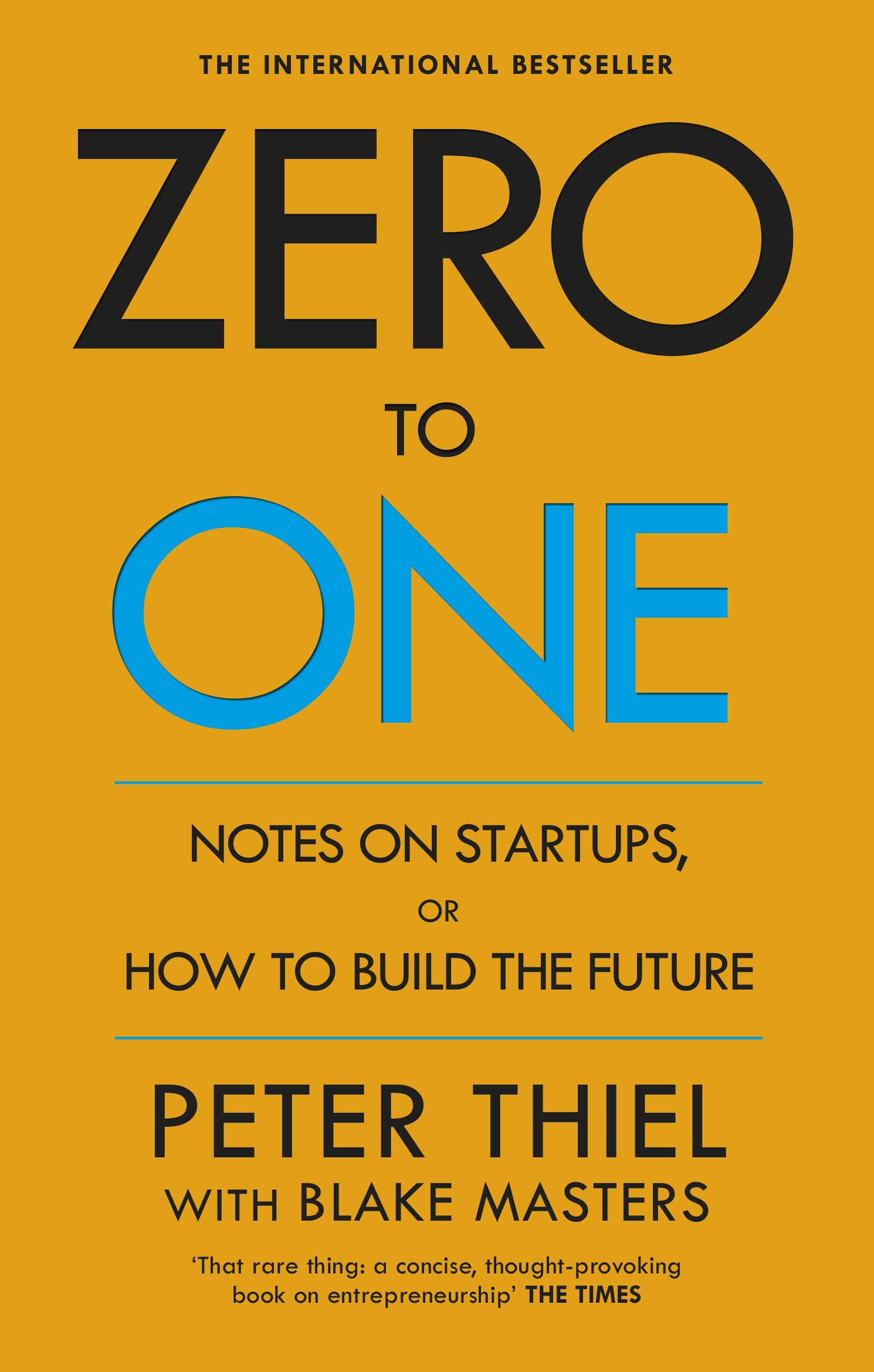A book written by Peter Thiel an entrepeneur/venture capitalist mostly known for his early investments in facebook and being one of the co-founders of paypal. The book shows the perspective Thiel has on early startups, technology and how to innovate.
Going from “zero to one”
To go from nothing to something represents the creation of something that has never existed before. Thiel emphasizes the importance of developing monopoly-like businesses that offer unique value propositions, as opposed to competing in crowded markets.
The biggest leaps in progress are vertical not horizontal. Most of the progress we see day-to-day is horizontal. Doing what we already know how to do takes the world from 1 to n, adding more of something familiar. But every time we create something new we go from 0 to 1. The act of creation is singular.
If you take one typewriter and build 100, you have made horizontal progress. If you have a typewriter and build a word processor, you have made vertical progress.
Like always i will share a few quotes/sentences from this book that i enjoyed:
Brilliant thinking is rare, but courage is in even shorter supply than genius.
- It is better to risk boldness than triviality.
- A bad plan is better than no plan.
- Competitive markets destroy profits.
- Sales matters just as much as products.
The most contrarian thing of all is not to oppose the crowd but to think for yourself.
In business, money is either an important thing or it is everything.
According to Marx, people fight because they are different. -The greater the differences, the greater the conflict.
Winning is better than losing but everybody loses when the war isn’t one worth fighting.
The perfect target market for a startup is a small group of particular people concentrated together and served by few or no competitors.
As you craft a plan to expand to adjacent markets, don’t disrupt: avoid competition as much as possible.
You should focus relentlessly on something you’re good at doing, but before that you must think hard about whether it will be valuable in the future.
Defining roles reduced conflicts.
Seven questions every business must answer:
- Can you create breakthrough technology instead of incremental improvements?
- Is now the right time to start your particular business?
- Are you starting with a big share of a small market?
- Do you have the right team?
- Do you have a way to not just create but deliver your product?
- Will your market position be defensible 10 and 20 years into the future?
- Have you identified a unique opportunity that others don’t see?
To summarize:
Great book to read, doesn’t take that long to read and the ideas are refreshing. Thiel’s visions are unique and sometimes contrarian which is what made me enjoy the book.
SCORE: 7/10
